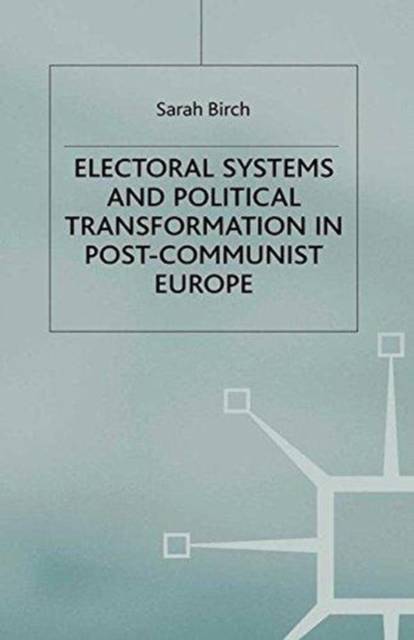
- Afhalen na 1 uur in een winkel met voorraad
- Gratis thuislevering in België vanaf € 30
- Ruim aanbod met 7 miljoen producten
- Afhalen na 1 uur in een winkel met voorraad
- Gratis thuislevering in België vanaf € 30
- Ruim aanbod met 7 miljoen producten
Zoeken
Electoral Systems and Political Transformation in Post-Communist Europe
S Birch
€ 83,95
+ 167 punten
Uitvoering
Omschrijving
Electoral Systems and Political Transformation in Post-Communist Europe assesses the influence of electoral systems on political change in 20 post-communist European states. The main finding is that electoral institutions have systematic effects on the formation of representative structures. 'Party-enabling' aspects of electoral laws such as list proportional representation tend to foster popular inclusion in politics and institutionalized party systems, whereas 'politician-enabling' rules such as single-member districts and ballots that allow voters to select individuals often favour the development of weakly structured systems and high levels of popular exclusion from the representative process.
Specificaties
Betrokkenen
- Auteur(s):
- Uitgeverij:
Inhoud
- Aantal bladzijden:
- 212
- Taal:
- Engels
- Reeks:
Eigenschappen
- Productcode (EAN):
- 9781349431380
- Verschijningsdatum:
- 1/01/2003
- Uitvoering:
- Paperback
- Formaat:
- Trade paperback (VS)
- Afmetingen:
- 140 mm x 216 mm
- Gewicht:
- 294 g

Alleen bij Standaard Boekhandel
+ 167 punten op je klantenkaart van Standaard Boekhandel
Beoordelingen
We publiceren alleen reviews die voldoen aan de voorwaarden voor reviews. Bekijk onze voorwaarden voor reviews.











